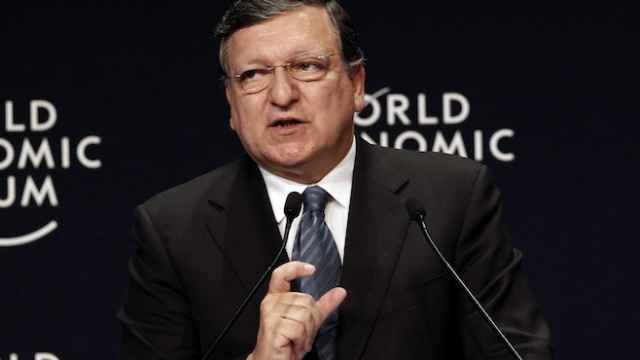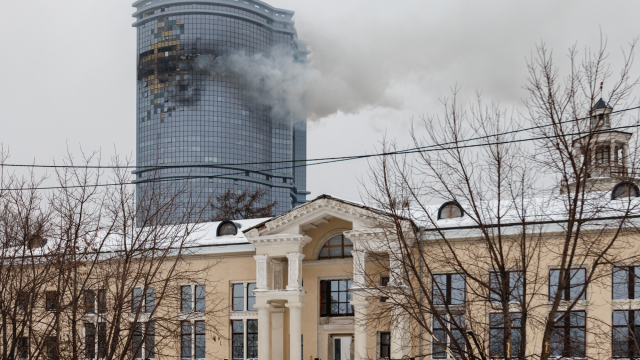STRASBOURG, France — EU lawmakers on Thursday took the latest step in efforts to bring Kiev closer to Europe, extending Ukrainian exporters' open access to the European Union until a trade deal takes effect at the end of next year.
An EU-Ukraine trade deal signed in June is at the centre of tensions between Russia and Europe because Moscow is also seeking deeper ties with the former Soviet republic. But in an attempt to prevent Russian retaliation, Brussels has delayed the pact's implementation until Dec. 31, 2015.
The European Parliament decided by 497 votes to 78, with 56 abstentions, to prolong Ukraine's unfettered access to the world's biggest trade bloc and its 500 million consumers till then.
The unilateral trade measure was introduced in April to help Ukraine's fragile economy and is part of the EU's offer of deeper economic and political ties with Kiev.
"This is proof of our political will and moral obligation," said Gabrielius Landsbergis, a Lithuanian center-right lawmaker.
Despite some resistance by EU governments who were reluctant to open their markets without seeing reciprocal benefits until the trade deal comes into force, diplomats say EU ambassadors will also sign off on the trade preferences on Oct. 28.
Trade is at the heart of a dispute that has morphed from a tussle between Brussels and the Kremlin over relations with Kiev to tit-for-tat economic sanctions, conflicts in Crimea and eastern Ukraine and fears of a new Cold War.
Ukrainian exporters will save almost 500 million euros ($635 million) a year in cuts in EU import duties and mark a historic shift away from Russia — if all goes through as planned.
Russian President Vladimir Putin has warned that Moscow will curtail Ukraine's access to vital Russian markets if Kiev implements the trade agreement with the European Union.
If Russia imposed customs duties, it would put at risk some of Ukraine's exports, which mainly consist of base metals, grains, machinery, equipment and processed food. Ukraine sends 24 percent of its exports to Russia, worth $15 billion a year.
Brussels hopes the delay will give it time to assuage Russian concerns about the pact, which is now a legal treaty that cannot easily be changed.
A Message from The Moscow Times:
Dear readers,
We are facing unprecedented challenges. Russia's Prosecutor General's Office has designated The Moscow Times as an "undesirable" organization, criminalizing our work and putting our staff at risk of prosecution. This follows our earlier unjust labeling as a "foreign agent."
These actions are direct attempts to silence independent journalism in Russia. The authorities claim our work "discredits the decisions of the Russian leadership." We see things differently: we strive to provide accurate, unbiased reporting on Russia.
We, the journalists of The Moscow Times, refuse to be silenced. But to continue our work, we need your help.
Your support, no matter how small, makes a world of difference. If you can, please support us monthly starting from just $2. It's quick to set up, and every contribution makes a significant impact.
By supporting The Moscow Times, you're defending open, independent journalism in the face of repression. Thank you for standing with us.
Remind me later.






